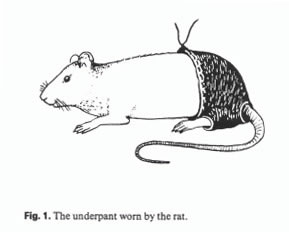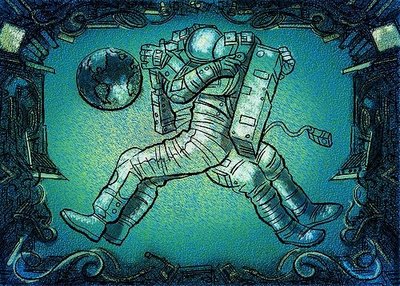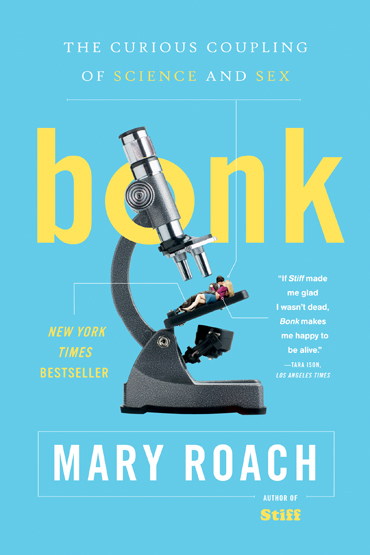Filed under: interview, Mary Roach | Tags: Beauty News NYC, Bonk, book review, interview, Mary Roach, research, science, sex, thoughts
“Once upon a time, there was a princess named Marie. She had long, thick curls and beautiful brown eyes, and her clitoris was three centimeters away from her vagina. The last bit was very depressing for the princess. She could never manage an orgasm during intercourse, and she felt certain that the far-off placement of her clitoris was the reason.”
In her latest New York Times bestselling novel, Mary Roach (one of my favorite authors) explores such questions as “Does height affect a woman’s capacity for sexual pleasure?” and “Can a person really achieve orgasm through mental concentration alone?” Bonk: The Curious Coupling of Science and Sex covers facts, myths and the weird, investigating a wide range of studies conducted around the world. I caught up with her at her book-reading event at the Bodies Exhibit and solicited her for an interview for the Dating section of Beauty News NYC. Luckily she obliged my humble requests and I was able to squeeze in a few questions during her busy book tour. Here is the relatively unabridged transcription of our conversation.[1] (FYI, I’ve highlighted the more interesting topics in purple. But if you want the very, very abridged version, visit the Dating section of Beauty News NYC.)
H: ...Is now still a good time to talk?
M: Yeah, I’m just stuffing my face with a disgusting airport breakfast taco if that’s okay.
H: I love it. Actually, my favorite part about traveling is getting McDonald’s breakfast sandwiches.
M: Airports are notorious for particularly disgusting food offerings. I don’t know why they can’t get their act together…Anyway.
H: Well I just have, well actually I have a few questions…
(Poor Mary Roach had no idea how extensive, or exhausting I would be.)
H: So I’ve read in past interviews that your idea for this book stemmed from an article that you stumbled across in a medical journal about penis cameras…
M: And my overactive imagination. I just thought OK, if there are scientists building penis cameras to do their work there must be an incredibly rich fascinating and surreal and weird scene and I figured that there were other weird and fascinating things that people were doing. It just sort of triggered a thought in my head. Sex is, you know, a private thing but it’s physiology and you need to bring people in to a lab to study it. But how weird and awkward is that?
H: Your research process must have been interesting, to say the least. How long did it take?
M: It took a couple of years. You know a lot of the time I was waiting for some study to get going and they wouldn’t get funding, or they’d get delayed. So the whole process got stretched out because I’m dependent on the researchers’ schedules and things tend to move very slowly in the academic world. It took at least two years. I started more or less when I finished writing Spook. And there’s a year of production time so it was 2005.
H: And you worked with W.W. Norton & Company, one of my favorite publishing companies. Aren’t they great?
M: They’re fantastic. I’ve done all three books with them they’ve done everything right and they’re such nice people. You know you hear all kinds of horror stories about the publishing world but I’ve been very lucky.[2]
H: So when you started, did you have any burning questions that drove your research and interviews?
M: No, I didn’t really. When I start a book I don’t really have driving questions that are leading me to do the research. It’s more about a process of correcting what I think is the most surprising, unusual, funny, quirky, grabby stuff. So it’s just a process of hunting. I’m always looking to find answers to the questions that everybody has. They’re not really my own questions. I kinda don’t work that way; I know that a lot of people have that one quest that they’re trying to achieve but I have a totally different approach.
H: What was the research processes like? Did you hit any speed bumps along the way?
M: I spent a lot of time sending out emails to people and getting them to tell me what was going on in their labs and then getting permission to go to their labs. [I did] a lot of hunting and going through back issues of journals and looking for fun stuff. It’s a very similar process [to Stiff and Spook]. This one, of course, had different challenges but [the process is] always about access and finding the stuff that will make a good chapter. The problem was usually that researchers weren’t doing something in the labs that was interesting to describe or they were already done with the project or they were only doing survey work. But once I found somebody that had a project that was interesting to me, the researchers were all very cooperative.
H: A problem that you did encounter at least once was that there was a lack of willing participants who would sign up for such studies as the three-dimensional imaging project.[3] In this particular case, you volunteered yourself (and Ed, your very dedicated husband) for the study. How was the experience?
M: Oh awkward and happily brief. It seems like some awkward procedure that you’re going to have happen at some hospital or doctor’s office and you know it’ll be over in 20 minutes and you’ll get through it. It kind of seems like that. It’s pretty awkward with somebody right there a foot away from you. It doesn’t feel a whole lot like sex. This was a biomechanics, “lets see what we can see” study.
H: During the course of your research, you traveled to Taiwan, Cairo and London. Did you notice any cultural differences in the way researchers approached the study of sex?
M: Certainly, Professor Shafik [of Cairo] had to. He couldn’t publish in his own country. I didn’t notice other cultural research differences partly because I think that one of the biggest differences is just that there are just whole areas of the globe where no one will do this kind of research. Especially in any kind of conservative Islamic or Muslim nation, it would be a point for criticism. Unfortunately, Dr. Shafik died of a heart attack shortly after the book came out so he never got to see it. He funded his own work, so he’s one of a kind. I don’t know that there would be too many people like him and certainly not in Egypt. He’s a bit of the controversial figure.

Dr. Shafik's infamous underpants study on the libido.
H: I’m sorry to hear that; he was a real maverick. I was especially interested in his implications when he said, “In all Arab countries, I don’t know why and how, conservative people are coming up greatly. Greatly!” Similarly, you mention on separate occasion that 1950s America was much more conservative than America in the 1920s. In terms of sexual liberation, are societies progressing or regressing…or what?
M: I think that we took a couple steps backwards during the Bush administration because there was such a rise in support of conservative family values. Christian groups would target researchers who did sex research. They would target them for criticism or put them in the spotlight for “wasting funds.” Hopefully, with the Obama administration things are back on track. In general, though, sex is a lower priority for research than, lets say, cancer or cardiac issues or mental health. It tends to be considered a lifestyle issue so it doesn’t get priority for funding as much. For the study of sex to grow, the country also has to have a pretty healthy research budget.
H: It almost seems as though sex research is more of a priority in the private sector than the academic world.
M: They have a strong profit motive. A lot of the private industries are funding academic work. Like in looking for any sort of pharmaceutical solutions you’ll get academic funding from private industries. They need to do studies to test drugs, usually through an independent party
H: In your opinion, is research, either publicly or privately funded, shifting its focus more to women’s sexual needs?
M: The focus has shifted toward women these days just because Viagra and all the related drugs have taken care of [men]. Men are pretty simple. They just want to be able to get it up. They don’t tend to have libido issues or desire issues. I’m speaking generally, but they tend to have pretty straightforward mechanical problems and Viagra took care of that so now the pharmaceutical companies are just really focused on trying to find something women will want to buy, something that makes them feel sexier more often, a pill that makes them more responsive when their husbands are in the mood.
H: Well maybe if sex was given more scientific priority we could more quickly expel common misconceptions. My favorite comes from the Middle Ages (and page 143 in the paperback version of Bonk) explaining male impotence: “…the common assumption was that impotent men had been cursed…[Witches] made the man’s penis disappear.”[4] Of course, some hundred years later, we know this to be untrue. If you had to guess, what common belief of contemporary society would you predict we’d look back upon 200 hundred years from now and think “Wow, we had it all wrong, didn’t we?”
M: I’m hoping people would look back with utter surprise and incredulity at the opinions of people who don’t accept homosexuality, who think that it is something to be punished for or ashamed of or discriminated against. I think that seems pretty backwards, so hopefully in 200 years that will be just really puzzling to that people who were persecuted or beaten up or murdered or denied the ability to legally adopt a child because of their sexual preferences. If everything goes as it should, that will seem very surprising. We should be there by now and we are in urban areas, but we’re not in the rest of the world, or even the rest of the country.

H: One of the fun tidbits in your book cites that some bulls exhibit homosexual arousal while others may exhibit the desire for multiple cows. If cows don’t seem to mind homosexuality (or threesomes for that matter) why should we? I mean, er, do you think that the existence of homosexuality and “aberrant” behavior in other species supports the “nature over nurture” theory about sexual orientation and practice?[5]
M: Well, actually there is a book called Biological Exuberance, which has about 600 pages and contains all kinds of quote unquote aberrant behavior in animals. I wouldn’t draw any conclusions but I think it is so prevalent across the animal kingdom – I think you could certainly point to that as an indicator… that it’s not surprising that it occurs in humans too. I’m sure conservatives would have a different interpretation of it.
H: Love and sex have been portrayed inextricably in so many instances. And yet, you consciously isolate the two and focus solely on the mechanics of sex. Was that an intentional choice? Would you write a book on love?
M: I’m always interested in surprising and peculiar things going on in laboratories. I love the intersection of laboratory and science with things like the soul, or sex, which is such a personal thing, or with death as in the first book. I’m interested in the behind-the-scenes stuff where science happens. Love is particularly ill-fitted because it’s very hard to define it and make sure that somebody feels “love.” Qualitatively and quantifiably, how do you know if you have a population of people that really are in love and how do you define it and what does it mean? It’s almost impossible to bring love into a laboratory situation because you have to trust people on their word that what they’re feeling and what they say. It’s not something that can be objectively defined. So, it doesn’t work as something you can study quantitatively very well and for that same reason… I wouldn’t do a book about it. People write about it in terms of evolution and biology but that’s theory and speculation and it’s not my bag.

Cupid and Psyche, mythological icons of love
H: Most people can’t even figure out if they’re in love.
M: …Or they thought they were and then 10 years later they meet someone and they really fall in love and then they go “Oh back then, 10 years ago, that wasn’t love. I thought it was but it wasn’t.” You go through life and you eventually do figure out what it is and it’s very obvious to you but when you’re younger [it’s hard to tell] the difference between love and infatuation, lust, a crush and emotional dependency. You know, there’s all kinds of stuff that people mistake as love.[6]
H: If not love, then, what is your next venture?
M: My next book is about the early days of aerospace medicine and current day space simulations. It covers all the weird physiological and psychological things that happen to human beings when you put them in an environment for which they are utterly un-adapted. It’s another quirky science. Outer space is interesting because there’s no gravity and no air, which is really freaky and is the source of all the difficulties space travel has to deal with.

H: Does aerospace sex make a guest appearance in the book?
M: Oh yeah, certainly. There’s a chapter about zero gravity sex, absolutely! I’ve already written it.
H: Oh, tell me about it!
M: No! You’re going to have to wait.
H: Ah, OK. What was your favorite part of the whole process then?
M: I think I had the most fun with the footnotes. Particularly in this book, I had two-and-a-half times as many of them [than in others] just because there was so much just great, weird, fun, fabulous material. …Err, my plane is boarding now… So, I have to go.
H: OK thanks so much again for taking the time to speak with me!
M: Sure, it was fun!

Mary Roach has been published in Outside, National Geographic, New Scientist, Wired and The New York Times Magazine. She has published three books including Stiff: The Curious Lives of Human Cadavers, Spook: Science Tackles the Afterlife and most recently, Bonk: The Curious Coupling of Science and Sex. She holds a bachelor’s degree in psychology from Wesleyan University.
__________________________________________________________________________________
[1] Roach was obligingly kind to agree to speak with me via phone while she was at the airport en route to her next book appearance. I, meanwhile, was situated in the only corner of my office job where cheesy pop music wouldn’t drown out any semblance of an intelligent conversation, attempting to simultaneously hunch over my phone and type. Between the airport announcements and my technological failures, we had some interesting miscommunications…
[2] I interned with W.W. Norton & Company in 2002, and she’s right. They are, by all measures, some of the kindest and free-spirited thinkers I have met in my career thus far.
[3] In this study, subjects were scanned with a sonogram wand during sex in order to determine how reproductive organs fit together. In Bonk, Roach details how she and Ed underwent the “procedure.” Mid-coitus, she scribbles down notes while Ed engages in typical banter with the doctor until the doctor says, “You may ejaculate now.”
[4] Other favorite misassumptions include masturbation-induced facial pustules and the medicinal use of animal testicle implants for male virility. Really, read the book.
[5] Here is where the beauty of airport/speakerphone conversation comes in. In attempts to appear academic and sophisticated, I painstakingly outlined the bit about homoerotic bulls prior to the interview, careful not to inject any hint of juvenile humor about the topic into my question. Of, course, by the time I had finished asking it, the phone connection had broken and she replied, “What? I’m sorry, I didn’t catch that!” Losing all my intellectual mojo, I responded, “Why…are cows having…orgies?!” I later relayed this conversation to my mother, expecting her to react with the same mortification as I. After listening to the story with wide eyes, she simply shook her finger at me and said, “Hannah, don’t get any ideas about orgies. They’re just cows,” and left the room. Hmmm. Mothers.
[6] As Bonk cites, there is a long list of items that people have made love to, the most popular being a toothbrush. And if you thought that a toothbrush couldn’t fit into a man’s urethra, you are wrong.
